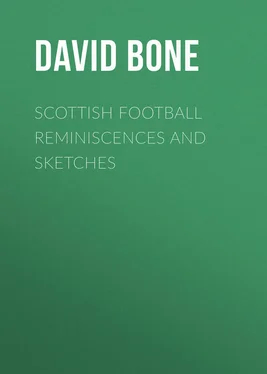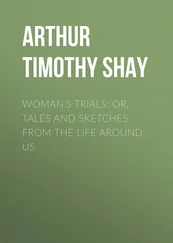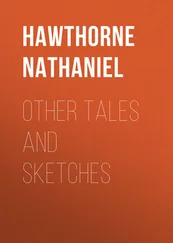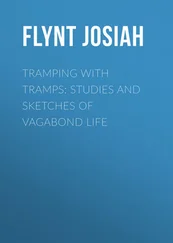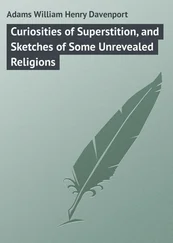David Bone - Scottish Football Reminiscences and Sketches
Здесь есть возможность читать онлайн «David Bone - Scottish Football Reminiscences and Sketches» — ознакомительный отрывок электронной книги совершенно бесплатно, а после прочтения отрывка купить полную версию. В некоторых случаях можно слушать аудио, скачать через торрент в формате fb2 и присутствует краткое содержание. Жанр: foreign_antique, foreign_prose, на английском языке. Описание произведения, (предисловие) а так же отзывы посетителей доступны на портале библиотеки ЛибКат.
- Название:Scottish Football Reminiscences and Sketches
- Автор:
- Жанр:
- Год:неизвестен
- ISBN:нет данных
- Рейтинг книги:4 / 5. Голосов: 1
-
Избранное:Добавить в избранное
- Отзывы:
-
Ваша оценка:
- 80
- 1
- 2
- 3
- 4
- 5
Scottish Football Reminiscences and Sketches: краткое содержание, описание и аннотация
Предлагаем к чтению аннотацию, описание, краткое содержание или предисловие (зависит от того, что написал сам автор книги «Scottish Football Reminiscences and Sketches»). Если вы не нашли необходимую информацию о книге — напишите в комментариях, мы постараемся отыскать её.
Scottish Football Reminiscences and Sketches — читать онлайн ознакомительный отрывок
Ниже представлен текст книги, разбитый по страницам. Система сохранения места последней прочитанной страницы, позволяет с удобством читать онлайн бесплатно книгу «Scottish Football Reminiscences and Sketches», без необходимости каждый раз заново искать на чём Вы остановились. Поставьте закладку, и сможете в любой момент перейти на страницу, на которой закончили чтение.
Интервал:
Закладка:
Thomas Lawrie
Mr. Lawrie has done much for football in connection with his club and the Association, both by example and precept. In the early days of the Queen's Park he was one of their most brilliant forwards, and in several of the cup ties, notably that between the Queen's Park and Renton, proved the best man on the field. He never shirked his work, or left hard tackling to the half-backs, but sprang on the ball and opponent at once, and generally had the best of it. Of all the fine forwards who received their football education under Mr. J. J. Thomson's, and later on Mr. C. Campbell's and Mr. Joseph Taylor's captaincy, none could keep his feet better on the field; and it was quite a rare thing to see Lawrie grassed by an opponent. Although not much above the middle height, he was a perfect football Hercules, and not long before retiring from the field opponents in some of the matches would frequently make earnest inquiries about whether he were to be included in the Q.P. team on that day. But for an accident to the knee which made him retire, after being chosen to play in the International against England in 1874, Mr. Lawrie would have then represented his club. After giving up active duty in the field, he has rendered noble service by being president of the Scottish Football Association, and loves the game as dearly as ever.
Harry M'Neil
The first final cup tie brought into prominence one of the neatest little dribblers and passers that ever played on the left wing of any club. Methinks I see him now, with his quick action, short step, and unselfish play, gliding down the side of the field, dodging an opponent close on the touch-line, and causing the spectators to laugh immoderately. Spectators are prone to make favourites, and while Mr. Campbell was assuredly one at half-back, Mr. M'Neil was none the less loved among the forwards. While playing in the leading games he was always ready with his joke, and I'll back him to be the best man in the world to explain away a defeat and magnify a victory for the club he loved so well. Mr. M'Neil was chosen seven times to play against England and Wales, and I remember his efforts and their results with pleasure. The only time he was sorely beset was in the International of 1876, when Mr. Jarrett (Cambridge University, I think), one of the English half-backs – a powerful young fellow – tackled him severely. The gallant little Queen's Park man, however, withstood the charges well, and came up from mother earth smiling. That match, however, ended in favour of Scotland by three goals to none. Mr. M'Neil was a member of the 3rd L.R.V. at the start of his career, and also of the Rangers, but joined the Queen's Park in 1872.
Robert W. Neill
Mr. Neill kept the late Mr. J. J. Taylor company at back in many of the most trying and critical Q.P. matches of 1876, '77, '78, and '80, and in all those years was a familiar figure in the Internationals against England and Wales. As we have previously said about the deceased Mr. Leckie, players have their peculiarities, and Neill had his. He was a really brilliant back and pretty sure tackler, but relied too much on his feet while defending goal, instead of using the breast and head. His individuality consisted in meeting the charge of an opponent with bended knees, and he had the knack of taking the ball away and making a brilliant return in a style that roused the cheers of the spectators. He was a very hard worker to the last, and only retired from football to go abroad some years ago. He has, however, returned to Glasgow, and may frequently be seen at some of the best matches of the season. His play during 1877 and 1878 was exceptionally good, and in those years was in the best form of any back in Scotland.
John Dickson
Poor fellow! Mr. Dickson had but a short career, not only in football, but in everyday life. He caught a severe cold one bleak evening coming from Hampden Park after a practice match, and succumbed to the malady of inflammation of the lungs at the age of 28. He started his football life as a back; but when the Queen's Park lost Mr. Gardner he was tried as goalkeeper, and did very well. Tall and gentlemanly in appearance, with neatly trimmed sandy whiskers and moustache, Dickson kicked out in front of his goal very neatly, and was not afraid to meet the charge of an opposing forward. An incident in his career caused a great deal of amusement at the time, however, and is worth recording, just to show the immense faith he had in the infallibility of his old club. It was in a cup tie with the Vale of Leven, when that club beat the Queen's Park by two goals to one. Dickson appeared at goal with an umbrella, as the rain was falling fast, but when the Vale scored their first goal he was obliged to throw away his companion, and work harder than ever he had done before.
Angus Mackinnon
A powerfully-made young fellow, above the medium height, Mr. Mackinnon was a very fair forward, and always played in the centre with Mr. William M'Kinnon, his namesake, and the pair were a "caution" to meet in a hot tussle. The six forwards took part in the play then, with two on each wing and a couple in the centre, and it was a treat to see how well the Mackinnons worked in their places. Mr. Angus, however, was rather short in the temper, and often had a "few words" with both companions and opponents during a game. He played a very indifferent game in the final tie and some of the matches previously, but was really in excellent form at that same year's International against England, and scored one of the goals. Mr. Mackinnon died about four years ago in Canada.
Frederick Anderson
If there is one player more than another that deserves to be remembered by his old club, the Clydesdale, for the manner in which he brought it before the public by scoring one of the goals in the third International at Partick in 1874, it is Anderson. He was a very fine dribbler, and about the most difficult man in the Clydesdale forwards to get the ball away from after he had obtained possession. Although not one of the original members, he was early associated with the Clydesdale, and played in the best games of seasons 1874, '75, and '76. He was a bit of a sprinter, and very fast on the ball, with very fine staying power. Many of the backs who played against him during his best days were afraid of Anderson when he got near the sticks. He is now in Manchester.
John M'Pherson
Mr. John M'Pherson, of the Clydesdale, is a much older player than his namesake of the Vale of Leven. When the Clydesdale went into the game with a dash that astonished even the Q.P., he was one of their finest forwards, and, possessing great speed, was not easily tackled by the best backs of the day. He always played on the right wing, and was a dangerous man at goal. Mr. M'Pherson did much both for football and cricket in Inveraray, and even now takes an interest in his favourite pastime in Rothesay, where he assists his father in the management of the Queen's Hotel. It may be mentioned that, in addition to his other qualifications, for "he was so versatile," M'Pherson has acted on more than one occasion as outrider to Her Majesty when she visited the Highlands. In 1875 he played against England.
William Gibb
I am sorry to say Mr. Gibb is dead, and that the sad event severs the link that bound the whole of the Clydesdale eleven together, with the exception of the blank left by the loss of their accomplished goalkeeper. Mr. Gibb was a tall and powerful young fellow, and I have frequently seen a few of his opponents feeling rather shy before attempting to oppose his progress towards goal. During the winters of 1873, 1874, and 1875, the Clydesdale forward play was good. So brilliant was his form in 1873 that he was taken to Landon to play against England, and scored one of the goals got by Scotland, who were defeated by four goals to two. Mr. Gibb's only fault on the field was a disposition to over-run the ball. He died about two years ago in India.
Читать дальшеИнтервал:
Закладка:
Похожие книги на «Scottish Football Reminiscences and Sketches»
Представляем Вашему вниманию похожие книги на «Scottish Football Reminiscences and Sketches» списком для выбора. Мы отобрали схожую по названию и смыслу литературу в надежде предоставить читателям больше вариантов отыскать новые, интересные, ещё непрочитанные произведения.
Обсуждение, отзывы о книге «Scottish Football Reminiscences and Sketches» и просто собственные мнения читателей. Оставьте ваши комментарии, напишите, что Вы думаете о произведении, его смысле или главных героях. Укажите что конкретно понравилось, а что нет, и почему Вы так считаете.
